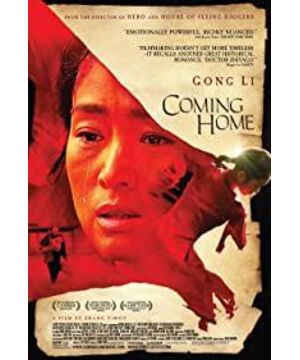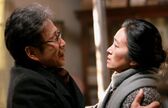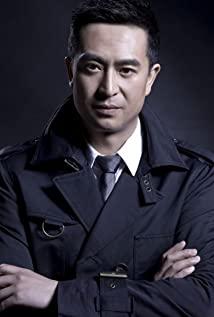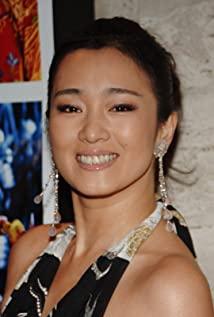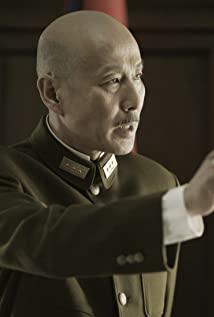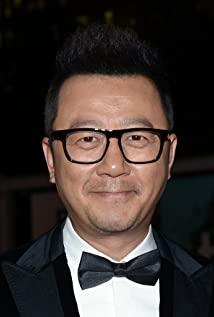Aside from the high expectations and requirements, "Return" is still a very good movie, at least it can tell a story calmly, no longer relying on strong colors or fancy special effects, and Gong Li's eyes have reappeared. The stubbornness who came out of "Qiuju's Lawsuit".
But compared to the original, these are almost two different stories.
The original work spans from the 1930s to the 1980s, telling the changes of a "petty-bourgeois intellectual" and his family for half a century.
People who have never seen the original work think that like the daughter in the movie betraying the father, it is miserable enough for the lover to meet and not know each other. Only after seeing the original will they understand that the movie is so bright and warm.
In the original book, Lu Yanzhi and Feng Wanyu had an arranged marriage. The young Lu Yanzhi felt that there was no love at all between him and Feng, so he ran to the United States after the marriage and let Feng stay a widow. After returning, his feelings for Feng were only "pitiful." "That's it, but Feng completely admits his fate, thinking that Lu's little bit of good for her is a reward. In order to please Lu, he sold the ancestral jewelry and sold Feng a gold watch, but Lu didn't like it at all.
Later, when the Anti-Japanese War broke out, Feng moved to Chongqing alone to teach, and he had "love" in Chongqing. Feng stayed in Shanghai to take care of his stepmother and children, struggling to support a family, and he was hungry. "Jiang Chun Shui Flows East", seeing this, can you connect the romantic Lu Gongzi with the film's affectionate and good man Chen Daoming?
Lu Yanzhi really felt that he "loves" Feng Wanyu. After being labelled as a rightist and sentenced to life after liberation, during his cruel exile in Qinghai, Lu Yanshi felt that he missed Feng Wanyu more and more. He began to think that he loved Feng Wanyu.
But when I read this, I wondered, is this "discovering true love" or because he has nothing. Feng is almost the only person in his life who is still good to him. If this is love, then why did he feel nothing when we were together? Woolen cloth. It's not so much love, it's more like the only sustenance left in life, which can give him the courage to live and even run away.
In Lu's long time of exile, the memories of the past over and over again, those who originally hated arranged marriages, and the mental distress brought about by loveless marriages, compared with the harsh environment that may be starved to death at any time, are really sweet. Memories. Therefore, Lu’s “petty-bourgeois intellectual” sentiment was truly transformed by the prairie where wolves were so hungry. He realized how “sickly groaning” and “not grateful” he was before. He lived as a professor. The western-style building, holding a "high salary" of 30 catties a month and remittances from relatives overseas, but still believes that he does not have spiritual freedom. He wants to pursue an "independent self", and he offends the "democrats" and the leftists. During the Anti-Japanese War, he did not follow the "textbooks" in class and sat in the Kuomintang for two years without knowing the lessons. It’s not all the way.” In the end, he became a rightist and was sentenced for 30 years. He also argued with the judge and asked to write “no additional punishment” in the verdict. As a result, the death penalty was changed and he was put on the court for tens of thousands of people. He also insisted on saying "I will go by myself."
This kind of "stubbornness" and "face-saving" had disappeared until he had survived the prairie famine for more than ten years. At that time, he wanted to see his own daughter. Yingtou’s documentary used the gold watch Feng Wanyu bought him to bribe, and rolled with the wolf in the snow. The skin of the frozen body was ripped off. In order to survive, he could bear everything, "The more you can’t survive. I want to live more and more," he silently wrote hundreds of thousands of words of manuscripts and letters in his mind, on the one hand the extreme humbleness of the flesh, on the other hand the wild talent stimulated by the pain in the soul, until then, he felt "no freedom" at every turn." The "petty-bourgeois intellectuals" who are "mentally depressed" truly become geniuses who have insight into the truth of human nature and the world. Famine, wolves and bullets can't destroy him, pretending to be mad and stupid for 20 years, staged the most impossible escape in history, through The no-man’s land ran back to Shanghai from Qinghai. By the way, she “snatched” a little girl to cover her way back to Shanghai to eat a bowl of Yangchun noodles. She took a look at her wife and children in the distance, and then went back and surrendered. If you filmed this section, it would be "Mission: Impossible V", "Prison Break" would be very weak! In front of the intellectuals who have been transformed by the vast world of ice swords and frost swords, 007 is another bird!
In the original work, Lu Yanzhi surrendered instead of being accused by his daughter. This is also rare in the original work that "believes in human nature" more than the movie. However, in the movie, the trivial matters of how the children used the returning father as an old servant, wanted to occupy his house, and no one wanted to support him in the end, only Lu Yanzhi and Feng Wanyu were left. A touching plot of staying together but not recognizing each other.
But I still doubt that in the original novel, did Lu Yanzhi and Feng Wanyu really love? Or the other party they miss is just the "imagination" they have imagined to support their own survival.
It’s even more terrifying when I think deeply. This may be the real reason why Feng Wanyu couldn’t recognize Lu Yanzhi, because she had never got true love in the first half of her life, and Lu Yanzhi never gave it to her. Half a lifetime's pity for a "poor woman", and the second half of his life's dependence on a "only relative".
Feng Wanyu has lived as a tragic woman all her life for the name "Lu Yanzhi". Waiting for him to return is the meaning of her life. When he does come back, she has lost this "dream", the real Lu Yan. Shi is too far away from him, the young talent who stays in the memory of twenty years ago and is constantly beautifying him through the fantasy of twenty years, and she does not want to admit this in her subconscious mind.
In my mind, if two people really love each other, no matter what the brain is bad, the memory will come back immediately when they meet, who will forget the most important person in his life. So the farthest distance in the world is not that I love you, but I no longer recognize you. But I think I love you, but I have already forgotten you.
For Feng Wanyu, the question of whether she loves Lu Yanshi or not is meaningless. Because she would go to the station to pick him up again and again, that was the meaning of her life. Love and non-love are just boring questions that young people struggle with.
In that era of chaos and harmony, all people need is a reason to live, and love and freedom are so extravagant things that they can only deceive themselves and say: In fact, I have loved, and there is a person in the distance. Wait for me, though, I have forgotten his (her) appearance.
In the original work, after Feng Wanyu's death, Lu Yanzhi returned to the grassland again. The place he once wanted to escape desperately became his final spiritual home. When he returned there, he could finally let go of everything and gain true freedom.
In fact, I would rather believe that they have true love, so that this story will not be so cold and sad. Because most people in that era did not think too much about the proposition of love and freedom. If you think too much, you will inevitably turn into Lu Yanshi, suffering and struggling with "being born in blessing but not knowing blessing" until he tossed himself to the point of peeling and breaking his bones, without dignity. And his daughter Dan Jue, with hereditary arrogance and talent, finally had to succumb to the reality of no romance, as if it was a destiny that generations of people could not get rid of.
The one who returned was Lu Yanshi, and the one who never returned was also Lu Yanshi. Twenty years ago, the arrogant and upright Lu Yanzhi who thought he could laugh and talk about world affairs, Lu Yanzhi who bit his ear and talked to her softly in the ancestral house thirty years ago, let the girl Feng Wanyu sniff when he first met fifty years ago. Lu Yanzhi, blushing and heartbeat when he breathed, had long been washed away by the big waves, transformed by the wind and sand, and buried by time. Feng Wanyu was right, "You are not Lu Yanzhi." All she can do is hold a sign with his name at the station and wait day by day until the sky is old and the sea is dry.
View more about Coming Home reviews


